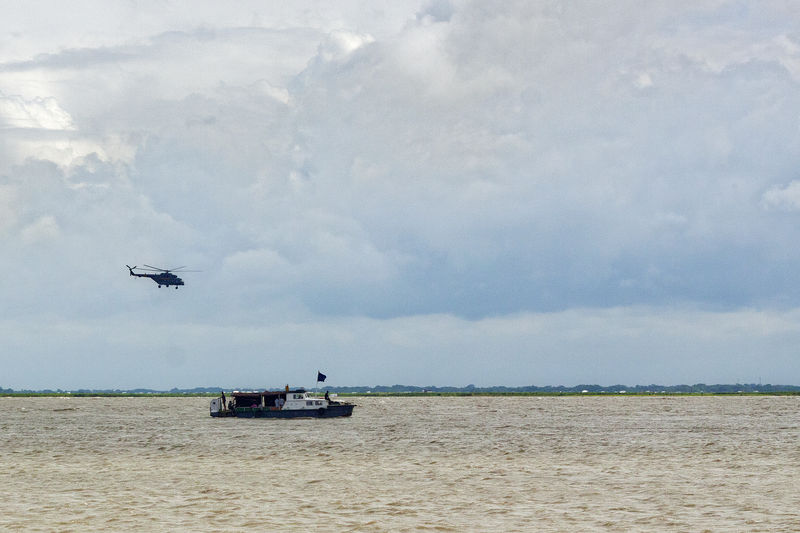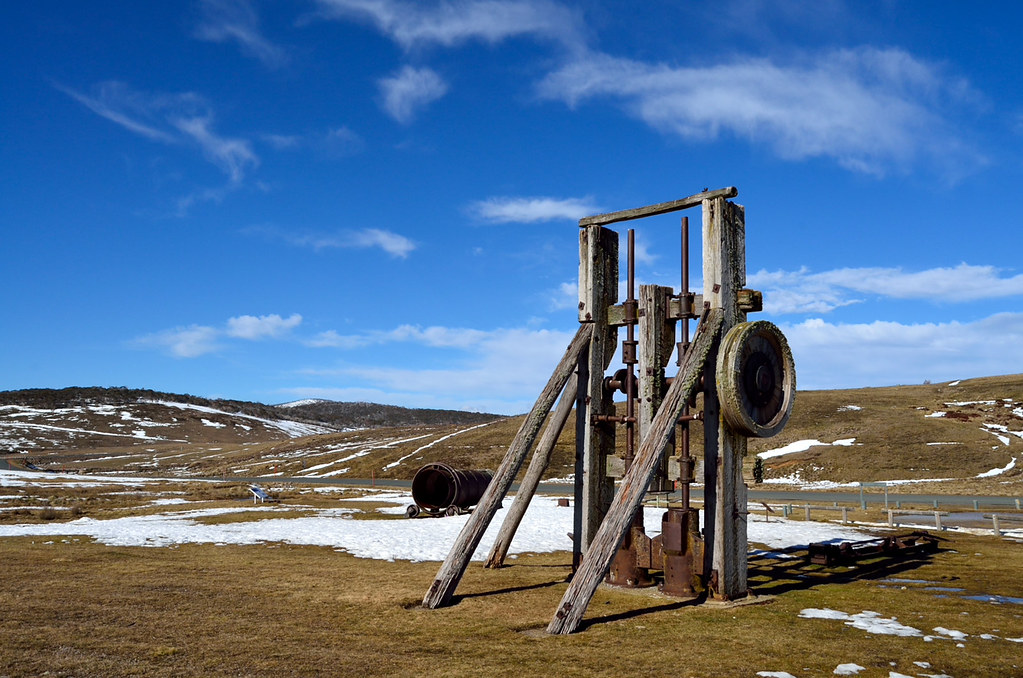On the 1st of November four drilling ships from Myanmar
started exploration for oil and gas reserves within 50 nautical miles south west of
St. Martins Island, in Bangladesh. A South Korean company was awarded the oil and gas exploration contract in that place and two Myanmar naval ships escorted the drilling ships. Three naval ships of Bangladesh went to challenge them but the Myanmar Navy responded by alleging that the Bangladesh Navy ships are trespassing.
This
escalated the maritime boundary disputes between Bangladesh and Mayanmar. Mayanmar
vowed to continue with the exploration despite the territorial dispute with Bangladesh. Bangladesh Government warned the Myanmar envoy in Bangladesh to immediately suspend all activities within the declared maritime zones of Bangladesh in accordance with the
Territorial Waters and Maritime Zones Act 1974 of Bangladesh and
sent a high level delegation to Myanmar.
Adding fuel to the fire four Bangladeshi woodcutters were
shot dead by the Burmese Nasaka (border force) alleging trespassing into Burmese territory.
But what is the background of this dispute? The Bay of Bengal has become a lucrative territory for the adjacent countries especially after India's discovery of 100 trillion cubic feet of gas in 2005-06 and Burma's discovery of 7 trillion cubic feet of gas. India also discovered oil.
None of the countries in this region so far claimed their marine boundaries before the United Nations (UN). India and Myanmar agreed territory between themselves but they need to solve the maritime boundary issues with Bangladesh as they are set to file their claim to the United Nations on June 29 and May 21, 2009, respectively. Under the U.N. Convention on the Law of the Sea (UNCLOS), Bangladesh too has to file its claim within July 27, 2011.
Bangladesh
claimed in 2006 that Burma had encroached 18,000 square kilometers into Bangladesh waters and floated gas exploration tenders. The
first round of talks between Myanmar and Bangladesh was in April this year but ended inconclusively in Dhaka. Both the sides then agreed to continue with the dialogue to reach a conclusion and meanwhile refrain from intruding into the disputed area for exploration.
Bangladesh
has so far refrained from energy exploration in disputed waters. But Myanmar did not. So the country has the right to protect its sovereignty and has demanded the Burmese ships withdraw until a maritime boundary can be established through talks.
The Guardian
reports:
The senior official from Burma's foreign ministry told Reuters: "We have no reason to stop the exploration activities since these blocks are located in our exclusive economic zone. We will go ahead with it."
Only a couple of months ago the Vice Chairman of Myanmar Ruling Government during his visit assured Bangladesh that Myanmar will not embark on any drilling in disputed areas of Bay of Bengal and will resolve the boundary dispute through bilateral discussions as per UN guideline. Bangladesh also pressed for early
finalization of the demarcation. The next meeting between the parties is due in November 16-17th. Now why Myanmar is going into the offensive?
According to the
Law of the Sea, Bangladesh can claims 12 nautical miles of territorial sea, 200 nautical miles of Exclusive Economic Zone, and 350 nautical miles of continental shelf in the Bay of Bengal and so does Myanmar.
India/Myanmar claim: Bangladesh claim:
Bangladesh claim: Images courtesy India Speaks
Images courtesy India SpeaksThe main dispute on maritime boundary delimitation between Bangladesh and Myanmar centres around Bangladeshi views to demarcate in equity basis North to South while Myanmar wants it for eco–distance system in East to West boundary.
The issue is not so simple as there are many legal issues and international negotiations at stake. A famous case ruling by International Court of Justice on 'North Sea Continental Shelf' concerning maritime boundaries Federal Republic of Germany, Denmark, Federal Republic of Germany and Netherlands describes the equity method (
Page 7):
(1) delimitation is to be effected by agreement in accordance with equitable principles, and taking account of all the relevant circumstances, in such a way as to leave as much as possible to each Party all those parts of the continental shelf that constitute a natural prolongation of its land territory into and under the sea, without encroachment on the natural prolongation of the land territory of the other;
Barrister Harunur Rashid has a
legal view of
Bangladesh's claims.
Engr. Khondkar Abdus Saleque writes in
Energy Bangla:
If we fail to stop aggression of neighbours to encroach our maritime boundary through proper diplomatic initiatives we must take resort to UN Convention and move to international court of justice to resolve maritime dispute. We can not afford to compromise our sovereign right on resources. [..]
For several months Bangladesh is discussing with Myanmar ruling junta for bilateral cooperation. Trade, energy, communication came under discussions. (But) Bangladesh did not make strong enough protests when ruling junta unleashed cruel actions against freedom loving Myanmar people were struggling for democratic rights.
In this situation it will not be unwise to consider Myanmar unilateral action as a fragrant violation of Bangladesh’s territorial integrity. If we fail to get the required response Bangladesh government must leave nothing unturned to protect our territorial integrity.
Myanmar earned $2.6bn from selling gas last year and these revues keep the country
protected from western sanctions.
According to latest
reports Myanmar stopped oil and gas exploration in deep-sea blocks in disputed waters in the Bay of Bengal on Thursday, a day after
Bangladesh asked China for help over the row. But they are yet to remove vessels and equipment from Bangladesh territory.
Energy Bangla discusses Bangladesh's
unresolved maritime boundary dispute with India. India is
alleged to have encroached 19,000 square kilometers into Bangladesh waters.
India Speaks defends the case for India:
India and Bangladesh started their bilateral talks way back in 1974, which was inconclusive. India was looking for equidistant border where Bangladesh was for equity based boundary. The same difference in arguments rendered Bangladesh-Myanmar talks inconclusive as well. But, India and Myanmar (opposite States) agreed upon equidistant boundary.
It cannot be denied that Bangladesh is now exposed to international oil and gas politics. We will see more such conflicts between India and Myanmar before 2011 when the maritime boundary is scheduled to be fixed by UN. The government should give
more focus to the demarcation issue and employ proper experts and resources to bolster Bangladesh's case.
A
Daily Star editorial says:
It is important that we make persistent and determined efforts to protect our interests. Bangladesh cannot afford to lose in the bargain for its legitimate share of the oil and gas rich Bay, which will only weaken our case for retaining the territorial waters that belong to us as per international laws.






































